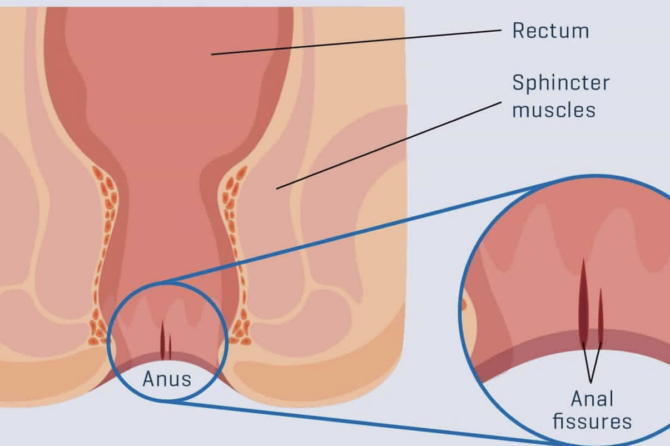
How Long Does Hemorrhoid Surgery Take?
Hemorrhoids are swellings in the vascular structures of the anus or rectum, often causing symptoms such as pain, itching, and bleeding. In severe or recurrent cases, surgical intervention is frequently preferred. Surgical methods vary depending on the type and severity of the hemorrhoid, as well as the patient’s general health. This article provides detailed information about the duration of hemorrhoid surgeries, the methods applied, and potential risks.
Surgical options include sclerotherapy, hemorrhoidectomy, and laser treatment. Each method has specific advantages and potential risks. It is important for patients to carefully evaluate these options before deciding on the intervention. Below, detailed information is provided about hemorrhoid surgeries to help patients make informed decisions.
How Long Does Hemorrhoid Surgery Take?
The duration of hemorrhoid surgery depends on the method used and the complexity of the hemorrhoid. Simple procedures like sclerotherapy can typically be completed within 30 minutes, while more extensive surgical interventions like hemorrhoidectomy may take several hours. Laser hemorrhoid treatment, a minimally invasive procedure, generally shortens operation time and speeds up the recovery process.
Sclerotherapy
Sclerotherapy is a method used particularly for the treatment of internal hemorrhoids. In this procedure, a chemical solution is injected into the hemorrhoidal veins, causing them to shrink and eventually reduce in size. Sclerotherapy is generally considered a quick and effective method with a low risk of severe complications.
Hemorrhoidectomy
Hemorrhoidectomy is the surgical removal of enlarged hemorrhoidal tissue. This method is particularly preferred for large and recurrent hemorrhoids. Although hemorrhoidectomy is often associated with more pain and a longer recovery period, it provides an effective long-term solution.
Laser Hemorrhoid Treatment
Laser hemorrhoid treatment has gained popularity in recent years as a minimally invasive method. This procedure uses laser energy to vaporize the hemorrhoidal tissue. Laser treatment is typically associated with less pain and a faster recovery process.
What Are the Risks of Hemorrhoid Surgery?
Hemorrhoid surgeries carry certain risks. The most common risks include infection, bleeding, pain, and the possibility of hemorrhoid recurrence. Infection, one of the most concerning complications, may require appropriate antibiotic treatment. Bleeding is often observed in the first days after surgery and may sometimes necessitate intervention. Pain, particularly after hemorrhoidectomy, is common and can usually be managed with prescription pain relievers. The risk of recurrence varies depending on the surgical method and the patient’s lifestyle changes.
When Is Hemorrhoid Surgery Necessary?
Hemorrhoid surgery is typically performed when conservative treatments have failed or when hemorrhoids cause severe symptoms. The decision to proceed with surgery depends on the type, size, and severity of the hemorrhoid, as well as the patient’s overall health and previous treatment experiences. Here are the most common situations where surgery is preferred:
- Chronic Bleeding: Persistent and uncontrolled bleeding can lead to anemia and require surgical intervention.
- Severe Pain: Pain that disrupts daily activities and is difficult to manage may necessitate surgery.
- Prolapsed Internal Hemorrhoid: Prolapsed internal hemorrhoids that cannot be repositioned may require emergency surgery.
- Thrombosed Hemorrhoid: Hemorrhoids containing blood clots can cause severe pain and swelling, often requiring surgery.
- Unresponsiveness to Medications and Other Treatments: If symptoms do not improve with conservative methods (high-fiber diet, water intake, sitz baths) or medical treatments (ointments, suppositories), surgery may be recommended.
Is Hemorrhoid Surgery Painful?
During hemorrhoid surgery, patients are typically treated with local, spinal, or general anesthesia, preventing any pain during the procedure. After surgery, most patients experience some pain and discomfort, which is normal and usually manageable. The level of pain depends on the type and scope of the surgery. Here are some methods for managing postoperative pain:
- Pain Relievers: Doctors often prescribe strong pain relievers for the first few days.
- Warm Sitz Baths: Sitting in warm water can help alleviate pain and swelling in the surgical area.
- Proper Hygiene: Keeping the surgical area clean and dry reduces the risk of infection and alleviates discomfort.
- Dietary Changes: A high-fiber diet can soften stool, reducing pain during bowel movements.
The severity and duration of postoperative pain vary depending on individual tolerance and the type of surgery performed. Most patients return to normal life shortly with proper pain management and adherence to medical advice.
Leave a reply
Leave a reply